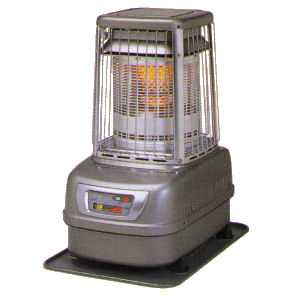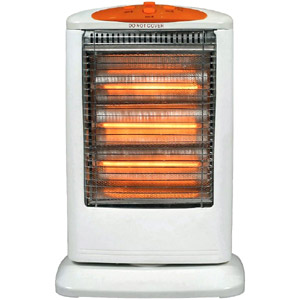It might be valuable to preface this by saying that many buildings in Japan do not have any kind of central heating system. They rely on various kinds of discrete units to provide heating. The difference in the units will be in their heating mechanisms and the extent to which they can heat a certain area.
To state the difference very simply, a ストーブ in home use will generally be a standalone unit that sits on the floor and burns some sort of fuel to create heat. There are many types of ストーブ, burning wood or coal or natural gas or any variety of fuel, but modern units in homes will usually use kerosene.

Image source
A ヒーター will usually be a sort of space heater. They'll have tubes that are heated and glow orange/red, radiating heat. Other sorts exist, like fan heaters or the like, but in my experience ヒーター has usually meant the radiating kind.

Image source
There is a third type of (often) wall-mounted heating device that combines air conditioning and heating into one unit. I believe that while stove or heater might have dedicated terms, people use 暖房 more generally with this, i.e. 暖房を入れる (referring to the エアコン). I'm not sure what mechanism they use to heat, but I'd guess they fall under the fan heater category because they blow warm air into the room. Note that 暖房 is a term for all kinds of heating and not air conditioning units exclusively.
There are very likely exceptions to each of these terms that I didn't cover and am not aware of, but this has been the difference in my personal experience.


